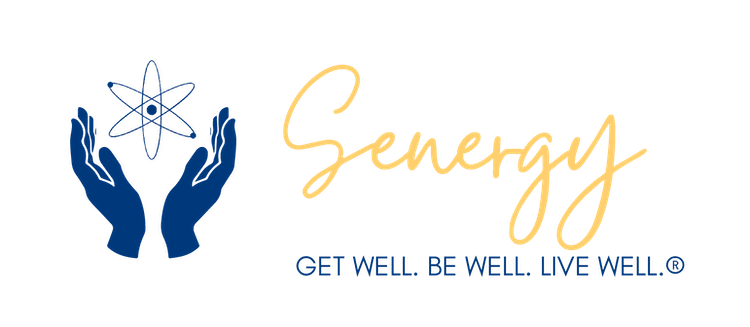- +972-580-0545
- live.well@senergy.us
- Mon - Fri: 9:00am - 6:00pm
Dental Procedures

A 58-year-old female was diagnosed by her dentist with a serious re-absorption of her two front teeth (on X-ray) as a result of a 20-year-old injury to the face. She was told she would need to have root canals and extensive work by a specialist at an estimated cost of $4,500- $6,000. She also complained of pain in the kidney area and pain in her ears. The MEAD assessment revealed inflammation of the kidney meridian (which also corresponded with the affected teeth). Initial dental procedures included BioModulator therapy and pads on the kidneys for three days; patient was able to decline any medication or visits to the emergency room until a kidney stone was passed. After six months of daily Tennant BioModulator therapy directly on the gums of the teeth in Infinity and Ten-8, drinking nutritional supplements and occasional therapy with the Tennant BioTransducer, patient returned to dentist and upon review of new X-rays was told that the teeth were rebuilding and she would not need to have root canals or other restoration performed on teeth. Additionally, she reports complete resolution to the pain in her ears and kidneys.
Dental Procedures: Pre & Post Surgery Relaxation
It is estimated that as many as 75% of US adults experience some degree of dental fear, from mild to severe. Dental phobia is experienced by 5- 10% of U.S. adults. That is, they are so fearful of receiving dental treatment that they avoid dental care at all costs. People who are very fearful of dental care often experience a “cycle of avoidance,” in which they avoid dental care due to fear until they experience a dental emergency requiring invasive treatment, which can reinforce their fear of dentistry.
Many dentists are turning to integrative, non-invasive solutions to assist patients with pain and to ease anxiety before and after surgery. Before surgery, integrative dentists offer several solutions to help patients relax including breathing techniques and a simple non-invasive relaxation therapy that balances the ANS and the cranial sacral system using the Tennant BioModulator for 5 to 10 minutes prior to dental services.
After dental procedures, the Tennant BioModulator with the BioTransducer attached is used on the recovering patient. Using a gentle dental approach, as well as these creditable Tennant devices, patients rarely experience any swelling, bruising, or require any pain medications.
Outer Facial Jaw-Line Massage
Temporomandibular joint dysfunction (sometimes abbreviated to TMD or TMJD), is an umbrella term covering pain and dysfunction of the muscles of mastication (the muscles that move the jaw) and the temporomandibular joints (the joints which connect the mandible to the skull). The most important feature is pain, followed by restricted mandibular movement, are noises from the temporomandibular joints (TMJ) during jaw movement.
Although TMD is not life-threatening, it can detriment quality of life. This is because the symptoms can become chronic and difficult to manage. TMD is very common. This affects 20-30% of the adult population. Usually, people affected by TMD are between 20 and 40 years of age. It is more common in females than males. TMD is the second most frequent cause of orofacial pain after dental pain (e.g. toothache).
Symptoms of TMD
- Pain or tenderness in the face, jaw joint area, neck and shoulders, and in or around the ear when chewing, speaking, or opening the mouth wide
- Limited ability to open the mouth very wide
- Jaws that get “stuck” or “lock” in the open- or closed-mouth position
- Clicking, popping, or grating sounds in the jaw joint when opening or closing the mouth. This may or may not be accompanied by pain or chewing.
- A tired feeling in the face
- Difficulty chewing or a sudden uncomfortable bite – as if the upper and lower teeth are not fitting together properly
- Swelling on the side of the face
- May occur on one or both sides of the face
Other common symptoms of TMD include toothaches, headaches, neck aches, dizziness, earaches, hearing problems, upper shoulder pain, and ringing in the ears (tinnitus).
Integrative, non-invasive dental procedures include: Physiotherapy, facial massage, yoga, and ultrasound. Physiotherapy for TMD using the Tennant BioModulator devices can override pain. By stimulating the superficial nerve fibers, it releases endorphins to reduce pain naturally.
Cranial Sacral Massage
Craniosacral therapy (CST), or cranial-sacral therapy, focuses on the concept of “primary respiration.” Craniosacral therapy improves the movement of cerebrospinal fluid. It also reduces tension through gentle manipulation of the head and spine. “Cranio” refers to the bony part of the head. “Sacral” refers to the sacrum, or the bottom of the spine.
Craniosacral therapy treats a range of ailments, from the physical to the neurological to the psychological. It has proven particularly effective in treating headaches, jaw problems, eye and ear ailments, and neck and back pain.
To learn more about using the Tennant BioModulator after dental procedures, book an appointment with a Senergy Advisor


